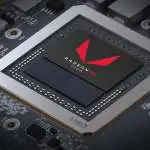The COVID-19 pandemic has had a massive impact on the world at large, with a great emphasis on practically shutting down the gaming industry. As more and more offices are forced to work from home, productivity has taken a major hit.
Much of this has led to games being delayed or even outright canceled. With teams that are working so far away from each other, it can be incredibly difficult to maintain a timeline and avoid pushing back patches, updates, DLCs, expansions, and even entire games.
This has led to some developers finding new and creative ways to work on their games. In the case of Bungie, they’ve paired up with Google to find new ways to playtest their game.
When dealing with online multiplayer or content, it’s important to test and make sure that everything is running properly. With everyone working from home, this requires hopping into the servers yourself and playing through a few test runs to make sure everything is working alright. Unfortunately, this takes up a great amount of bandwidth, and with the servers already heavily taxed by the current workload, the Bungie playtesting servers were stressed to breaking.
“Getting playtests at scale is a hard thing to do – a lot of bandwidth involved – so they’ve been collaborating with us to set that up and it looks like it’s going to be a really amazing solution for us,” Bungie’s Patrick O’Kelly explained in an interview with IGN. “It’s not something we necessarily thought about initially but it looks like it’s going to be a great way for us to keep getting regular playtests and do it pretty easily.”
It’s fantastic to see two companies banding together like this for benefit. Bungie getting the proper playtesting means a great amount of positive effect on the player base, who get to play the game in a better state instead of having to play a buggy mess.
Working with Stadia isn’t the only thing that Bungie has been doing to help ease the load and increase productivity. O’Kelly says that they’ve also provided staff with”developer-grade” laptops, incredibly powerful rigs that can run at the capacity needed to keep productivity going. Rather than working off of whatever machines the employees may have at home, these high-powered developer-grade laptops are able to perform at a significantly better performance.
Given that Google’s Stadia hasn’t been incredibly popular since launch, they might just be happy to have people playing it. Either way, seeing developers lift each other up is always heart warming.





